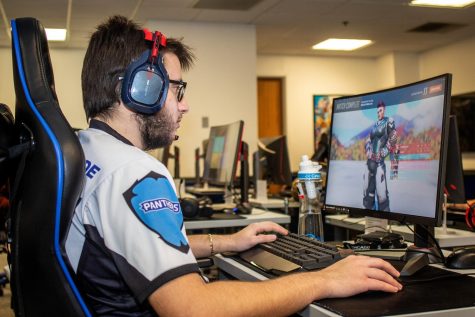
A month after my 14th birthday, a game published by Blizzard Entertainment called Overwatch was released. The official release took the game from an internet fad in its beta stages to a global smash overnight.
Overwatch saw unprecedented success in the first year and even walked away with the ‘Game of the Year’ award for 2016. It would also become a game where competition would arise and take shape early. Ranked play saw the best players grind to reach the highest rank in the competitive category and even snatch a spot in the regional Top 500.
As the game’s competitive nature flourished, one of the next steps the game would take would be successfully developing an esports league. By this time, there had already been esports competitions for Overwatch, but an official league was the next step in Overwatch’s journey as a competitive video game. On December 6th, 2017, the first preseason game was played for the Overwatch League. The new year saw the official commencement of the Overwatch League.
16-year-old me was ecstatic and couldn’t wait to watch. The product in its first season did not disappoint. I had to commute nearly an hour and a half to and from school during my sophomore year. For that final half of the school year, my eyes were glued to the matches that would happen after I got out of school. I still have memories of sitting on the bus and pulling out my phone to open the Twitch app and follow along to make sure I didn’t miss anything.
Esports in essence doesn’t have any differences from traditional sports besides the ‘e’ aspect. The reason 16-year-old me didn’t want to miss a single match from the inaugural Overwatch League season, is the same reason now 21-year-old me doesn’t want to miss a single game from the current NBA season. Esports is competition, passion and drive. Esports are important.
Now, yes, a teenager who’s watching one of his favorite games to play get an official league would be excited about it. That’s obvious enough. However, esports so much is more than meets the eye. The sheer number of games encapsulated under the esports umbrella is insane, and every year we receive more and more games that break into the esports scene.
Prime example, this year alone we got games like Street Fighter 6, and Call of Duty Modern Warfare III, which both franchises carry immense esports legacy behind them. These games are new opportunities to create history within esports, chances to grow the esports title even more than it already has and to expand further the deep history that esports have.
I say all of that to say, that esports are important. Not just important to the 16-year-old who wants to watch the pros battle for who’s the best team in Overwatch. Not just important to the 21-year-old now able to confidently compete in a local tournament. Esports are important to gamers everywhere. Since video games have had winners and losers, the competitive spirit to be the best has been there.
That spirit manifests itself into individuals ready to push their talents to the maximum. People who are ready to spend hours on end grinding to learn and become the best. Esports is important to those who care about witnessing history happen, and who have the competitive fire that drives them to be the best.
As esports grow with each passing day, there will be more and more people who tune in to spectate. More people who spend time grinding to be the best. More people flying to sell out arenas and witness history. Why? Because esports are important.
Maurice Phipps can be reached at 581-2812 or at densportsdesk@gmail.com.



















![[Thumbnail Edition] Senior Foward Macy McGlone, getsw the ball and gets the point during the first half of the game aginst Western Illinois University,, Eastern Illinois University Lost to Western Illinois University Thursday March 6 20205, 78-75 EIU lost making it the end of their season](https://www.dailyeasternnews.com/wp-content/uploads/2025/03/WBB_OVC_03_O-1-e1743361637111-1200x614.jpg)













































